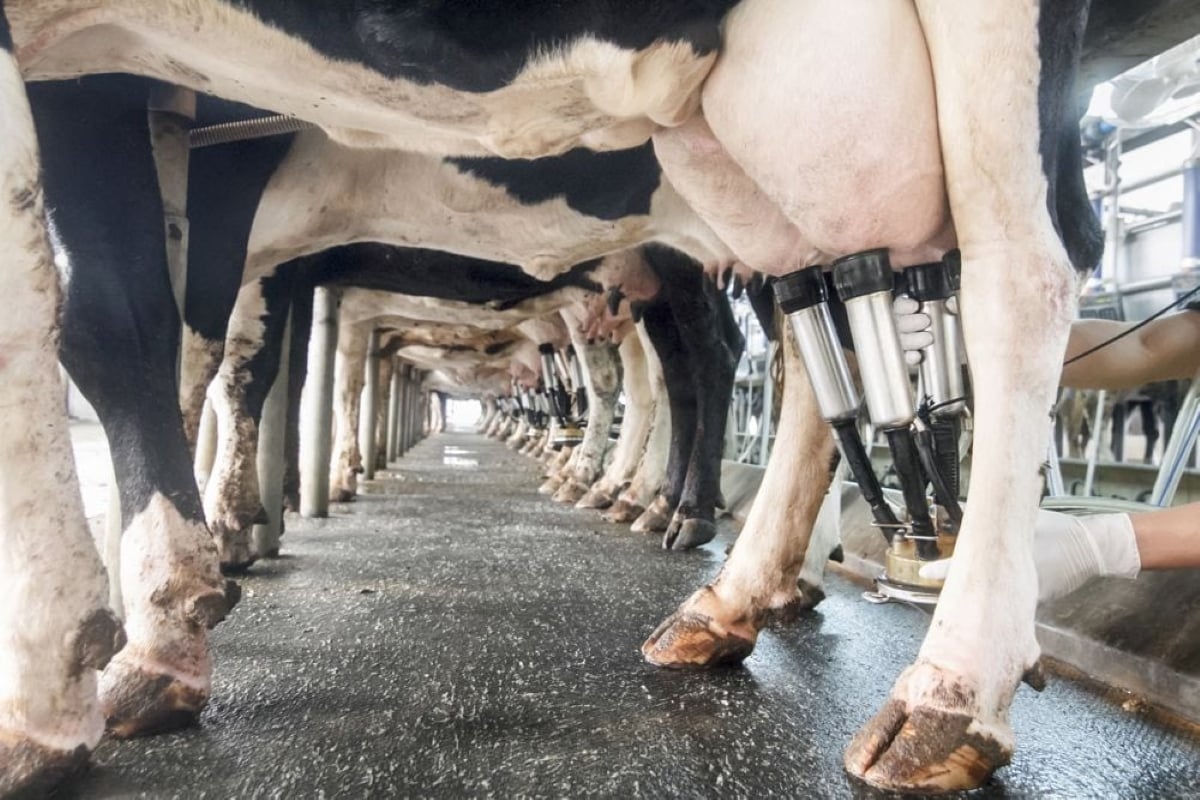Canadian Pacific Railway will spend an additional $75 to $100 million this year to upgrade tracks and signaling systems in Western Canada and parts of the United States.
In a May 7 news release, the Calgary-based railway company said it would increase 2013 capital spending to as much as $1.2 billion this year, up from the $1.1 billion that was originally budgeted.
Chief executive officer E. Hunter Harrison said the extra spending will allow the company to fast-track system upgrades that were originally slated for next year.
The additional spending will be aimed at improving productivity and safety.
Read Also

Farm gate milk price to rise in 2026
The Canadian Dairy Commission will raise its farm gate milk price by 2.3255 per cent in February, the Crown corporation announced on Friday.
Fast-tracked projects include:
• Track upgrade work including new ties, rails and ballasts at various locations on the company’s northern main line between Winnipeg and Edmonton.
• Upgrades to signaling systems on the company’s Midwest main line running from Moose Jaw, Sask., to Chicago.
• The acquisition of core assets that CP would otherwise leased.
“As our railway continues to transform, we see opportunities to accelerate enhancements to key sections of our North American system,” Harrison said.
“By taking these opportunities now to further improve our operations, we will be better positioned to respond to our customers’ shipping needs.”
CP has had a number of derailments over the past few months, including one in western Minnesota, which spilled nearly 60,000 litres of crude oil, and another in northwestern Ontario, which spilled 65,000 litres between Thunder Bay and Sault Ste Marie.
In late April, 17 cars from a westbound CP train carrying potash derailed near Provost, Alta.
Those incidents occurred as the company pushes ahead with efforts to cut staff, reduce operating costs, improve service and boost the railway’s overall efficiency ratings.
CP has said the recent derailments in Canada and the U.S. were isolated incidents and related to the company’s ongoing cost cutting measures.
The company announced last year it will eliminate at least 4,500 jobs, and possibly as many as 6,000, between 2012 and 2016.
In an April conference call with investors, Harrison said year-over-year figures show CP’s reportable derailments were up marginally but the severity of the incidents was lower and related costs were down.
“I can tell you that operating safely has been and always will be priority No. 1 at CP, and that focus is not going to change,” he said.
“As we continue to change this culture … not only are we going to perform well on the service side but we’re also going to perform well on the safety side, so there’s more progress there to be made.”
CP recently reported net income of $217 million, or $1.24 per share, in the first quarter of this year, up 51 percent from the same period last year.
The company’s first quarter operating ratio improved to 75.8 percent, down from 80.1 percent a year earlier.
Harrison called CP’s first quarter results the best in the company’s history, despite challenging winter conditions.
CP’s plan to acquire core assets will strengthen the company’s balance sheet, officials added.
The company is in the process of adjusting its grain hopper car fleet.
CP has said it is in the process of ending its hopper car leasing agreement with CWB and will have returned all leased cars to the board by August 2013.
“CP has taken several steps to improve the productivity of its grain car fleet, including combining our Canadian and U.S. fleet into one North American fleet and adjusting our fleet composition to improve its reliability and carrying capacity,” CP spokesperson Ed Greenberg said.
“Through these efforts it was determined the lower capacity CWB cars are no longer required as part of CP’s fleet.”
In addition to other system upgrades, CP’s 2013 capital budget will include 12 siding extension projects to facilitate longer trains.














